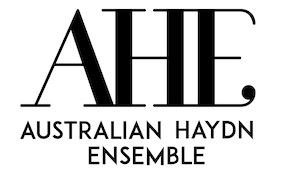Hearing Beethoven’s piano works played on instruments he would have known was an exciting novelty 40 years ago thanks to the early experiments by Paul Badura-Skoda and Jörg Demus (on not-terribly-well restored Conrad Grafs and Broadwoods), which despite their jangling tone and rattly action gave us the startling revelation of the true “una corda” pedal and the sensation of the wild composer-pianist stretching the possibilities of the instrument to near breaking point.
Thanks to the advances in sensitive restoration, and some marvellous craftsmen building impeccable copies, we now have more sense of the peculiar characteristic beauties that were lost in the search for improvements in volume and evenly graduated tone while the more polished results carry their own musical validity.
Ronald Brautigam has proven this with his marvellous survey of the complete works played on superb sounding copies by Paul McNulty. With the masterworks now all dealt with we are coming to the fag end of the series, but there are still plenty of delights revealed in fresh colours and the particular tonal qualities and domestic nature of the fortepiano elevates the most slight of Beethoven’s scribblings. This volume might seem a mere completist appendix but makes a delightful 68-minute program in its own right, covering the whole of Beethoven’s composerly career from beginning to end.
The most famous piece, for which the volume takes as its title, really is a piece of inconsequential fluff but there are other works here deserving the loving attention and care that Brautigam takes with them such as the lovely Andante favouri (the rejected slow movement of the Waldstein Sonata), the Fantasie Op. 77 or the charming little Ecossaises.
As usual the program notes are scholarly and informative while the SACD recording is ideal in clarity and perspective; not too close so as to catch distracting action noise.
This series really is superb and should be contemplated without prejudice; Brautigam’s musicality deserves to be heard and should override any qualms you may have over the period instrument issue. He manages to strike an ideal balance between unpretentious simplicity of phrasing and wild colourful virtuosity, between Olympian calm and Apollonian fire. Would I be stretching credibility to suggest he sometimes channels the spirit of Beethoven? For those who might scoff I suggest you sample his Waldstein or Appassionata on Vol 6 (BISSACD1573) – it might well turn you over to the dark side.












Comments
Log in to join the conversation.